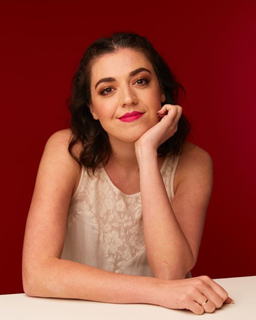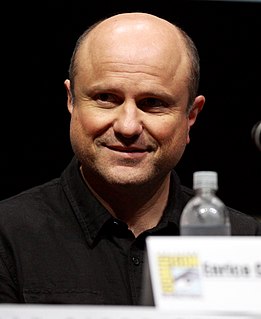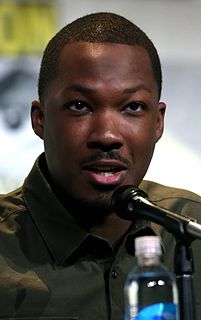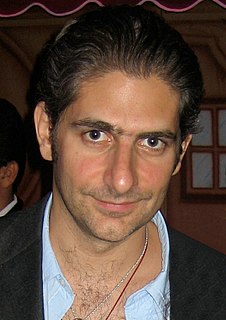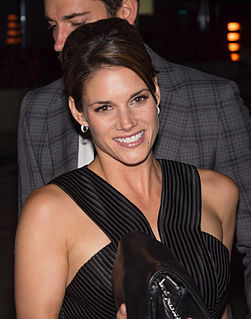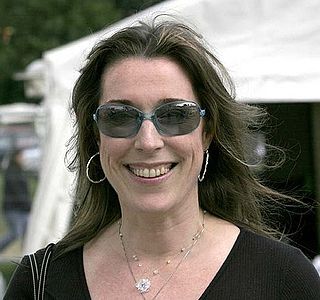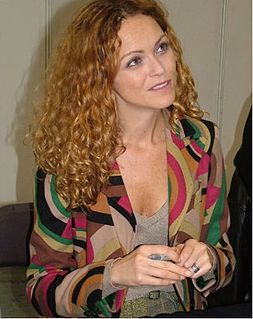A Quote by Barrett Wilbert Weed
The goal, when you're playing a character that's super beloved from a movie, is to honor what the actor before you has done and then really just expand, which is what you get to do in a musical because you have songs, choreography, and everything is happening in real time.
Related Quotes
I really admire actors who have time, because time is really the greatest luxury for an actor to live with a character, to develop a walk and a talk, or to listen to tape if you're playing a real character. But without time you're really just forced to make quick choices and move on and hope that the spaghetti sticks against the wall.
The truth is that filmmaking is not really an actor's medium; it's really a director's medium, so all I can really control is the character that I'm playing. So I try to look for characters that are interesting and engaging and different than what I've done before and hopefully it becomes a good movie.
I've never acted before in a movie I've directed. This felt like the time to do it just because the " Leaves of Grass" movie itself is so much of a platform for the lead actor. It's really written for an exciting performance and it really depends on the audience watching an extraordinary actor having a great time pulling off this feat. It makes sense to me as a director to act in support of that.
I have a real passion for playing a role that's a strong female character, that's just not typical, with a lot of heart, not an easy sell of a movie, not real commercial. It doesn't have to be a big movie, but I'm just looking for something that I really, truly, 100 percent believe in and am behind.
Movie stars exaggerate certain things to let the audience know they're just playing a character, as if they're saying, "Look at me, I'm not really an old man, I'm just playing one." Or "I'm not really a homosexual, I'm just playing a gay character. Or an alcoholic. Or somebody who's mentally impaired." They often do it very successfully and win awards for it.
It's never the practice to shoot the scenes in the proper order. Sometimes you shoot the final scenes of a film before you've even started the beginning. So you get good at it because you have to sort of just eliminate the memories of something you've done as an actor, which you haven't done as the character yet. But it sometimes is a bit of a mind-f**k.
You try and imagine what it must have been like to first see something moving on a screen. It must have blown your mind, because up to then life went by and there was no way to capture it. You could only get one instant and you didn't get the movement. So it's like having a bit of control over time really, because it's happening in real time or what seems to be real time, and then you can play it backwards and you can watch things again and again.
It's like I'll sit down and put my hands on the piano or the guitar, and then I'll hear a sound or I'll feel a chord that will resonate and then I'll get something happening in my voice. My voice is like a car that I get into and drive but I don't know where I'm going. And I record everything. And often, I sort of get into a state, a creative state that is, where I'm just feeling around melodically, and playing things off the top of my head. Then I go back and listen to it and for the first time, hear what I just did. It's like Elvis has left the building while the thing is happening.
The director is the most important because, ultimately, as an actor, when you watch a movie, it looks like an actor is giving a performance, and they kind of are. But, what's actually happening is that an actor has given a bunch of ingredients over to a director, who then constructs a performance. That's movie-making.
I don't think I had any idea at the time how to work with someone as masterful as he is. And I don't think at the time I really understood what was happening. I think I was in a space where I was like: there are all these things. I was shooting all these takes with David, and I was just confused, as a person, and as an actor feeling a little too big for my britches and that this thing was happening and then also not having enough skill yet, and technique to know exactly where I was, and know about the character.
That's the way I came up, writing and recording at home. I developed by playing everything myself. I was a drummer first and that's my favorite instrument to play. Once I get the drums done, everything else comes real quick. Also, we track in my friends' garage, which is really small ... there's not really room to record live with a band.
You are playing a character obviously, and everything you are saying is filtered through that person. It is not you that is saying it. It is filtered through a character that doesn’t have your own set of values - so it is not really odd. Inevitably we help each other with a lot of line-learning. Plus there is a familiarity which is quite nice. We have done TV together before.
Well, I don't know anything about television. I'd never done it before. Initially, it was quite daunting to take on so much challenge and so much time with it. I think it is a great outlet for an actress because you really have 13 hours to bring a character to life, which is so much more than with film, and you have the luxury of time to tell a story and to really color a character.
